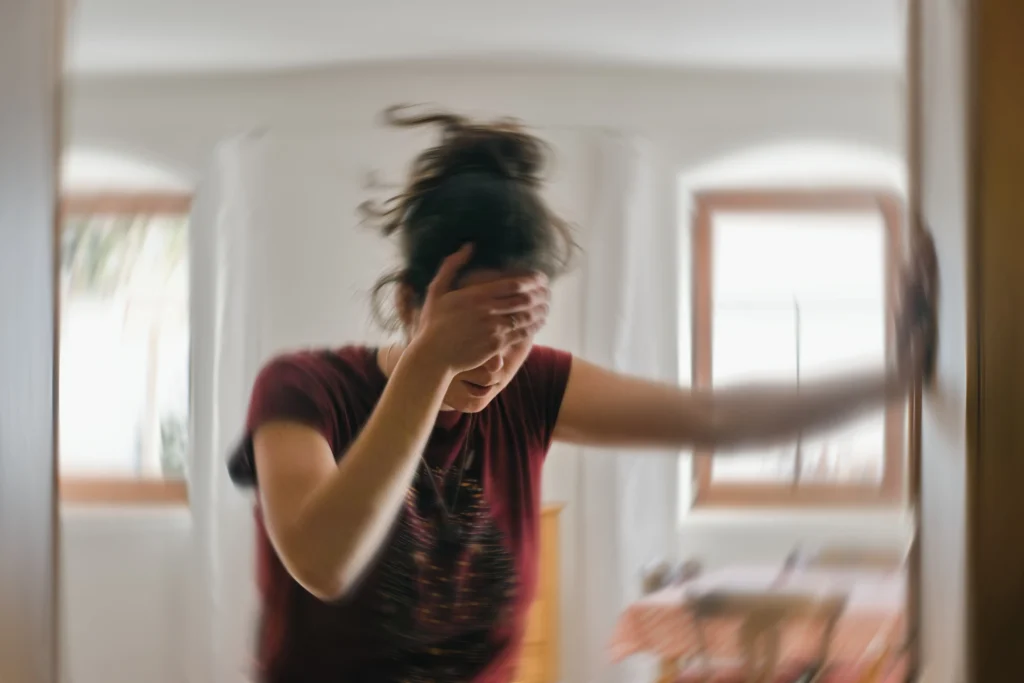Benzodiazepine Information
Information about benzodiazepines, also known as benzos, identifying signs of addiction, and recovery.
Begin your insurance verification today

Overcoming Benzodiazepine Addiction
If you or someone you care about is struggling with benzodiazepine addiction, it can feel overwhelming and isolating. You’re not alone in this, and there is help available. Benzodiazepines, commonly called “benzos,” are prescribed to treat anxiety, insomnia, and seizures, but their misuse, often combined with substances like alcohol or opioids, has led to a concerning rise in addiction and overdose cases.
At Cornerstone Healing Center, we’re here to provide the support and resources you need. From offering comprehensive benzodiazepine information to compassionate treatment options, we’re committed to helping you and your loved one navigate this challenging journey. Recovery is possible, and we’re here to guide you every step of the way.
What are Benzodiazepines?
Benzodiazepines, often called “benzos,” are prescription drugs used to treat anxiety, insomnia, and seizures. They work by calming the brain and nervous system, which makes them effective for short-term relief. However, they can be very addictive, and misuse can lead to serious health problems, including dependency.
Here is a list of benzodiazepines by their brand names:
- Valium®
- Xanax®
- Restoril®
- Ativan®
- Klonopin®
It’s important to understand the risks of benzodiazepines to recognize misuse and get help if needed. If you or someone you care about is struggling with benzodiazepine addiction, seeking professional treatment can be the first step toward healing and recovery.

Key Benzo Facts

- In the United States, around 1.4% of the population, or approximately 3.9 million people, reported misusing benzodiazepines in 2023.
- Benzodiazepines are more frequently prescribed to women than men
- U.S. adults aged 18 to 35 report the highest rates of benzodiazepine misuse, often using the drugs recreationally or to self-medicate for stress or anxiety disorders.
Understanding and Identifying Benzodiazepines
Origins
What Do Benzos Look Like?
What Do Benzos Smell Like?
How Are Benzos Ingested?
Paraphernalia
Benzodiazepines, or “benzos,” were discovered in the 1950s by chemist Leo Sternbach at Hoffmann-La Roche.
The first benzo, Chlordiazepoxide (Librium), was approved in 1960, followed by Diazepam (Valium) in 1963, which became one of the most widely prescribed drugs globally. Other benzodiazepines like Alprazolam (Xanax), Lorazepam (Ativan), and Clonazepam (Klonopin) were introduced in the 1960s and 1970s to treat anxiety, insomnia, and seizures.
Today, despite stricter prescribing guidelines, benzodiazepines remain widely used.
Benzodiazepines come in various forms, including tablets, capsules, and liquid solutions, with appearances varying by drug and manufacturer. For example, Xanax tablets are typically white and rectangular, while Valium tablets are round and may be yellow, blue, or white, depending on strength. Klonopin is often round and blue or white, and Ativan tablets are usually white and round.
It’s important to note that counterfeit or adulterated benzodiazepines are increasingly common, especially in illegal markets, making appearance an unreliable indicator of authenticity or safety.
In their pure form, most benzodiazepines are odorless or have a very faint scent. Liquid formulations or those mixed with other substances might carry a mild alcohol-like or medicinal smell. However, relying on smell to identify benzodiazepines is unreliable, as their subtle or nonexistent odor makes them difficult to detect this way.
Benzodiazepines are usually taken as tablets or capsules, but some, like Diazepam and Midazolam, are also available in liquid form. In medical emergencies, such as seizures or severe panic attacks, they may be given intravenously or through an injection for quick relief.
Misusing benzodiazepines by snorting or injecting them can lead to serious risks, including overdose. How the drug is taken can affect how quickly it works, how intense the effects are, and the likelihood of developing dependence.
Benzodiazepine paraphernalia is usually minimal since these medications are typically taken as pills. However, misuse may involve crushing and snorting tablets, which might require items like straws, rolled-up bills, or razor blades. In rare cases, injecting benzodiazepines requires syringes and needles.
The presence of pill crushers, straws, or injection tools could be a sign of benzodiazepine misuse.
General Benzodiazepine Information

Benzodiazepines and the Opioid Epidemic
The misuse of benzodiazepines has become increasingly linked with the opioid epidemic, as they are often combined with opioids to enhance euphoria or manage withdrawal. This dangerous combination can cause severe respiratory depression, overdose, and death, prompting guidelines against their concurrent use. The emergence of illicit benzodiazepines contaminated with synthetic opioids like fentanyl has heightened these risks.

Withdrawal and Dependence
Long-term use of benzodiazepines, even at therapeutic doses, can cause physical dependence and severe, potentially life-threatening withdrawal symptoms such as anxiety, insomnia, tremors, seizures, and delirium tremens. The severity depends on the specific drug, duration, dose, and individual physiology.
Gradual dose reduction under medical supervision is recommended to minimize risks. Many individuals may need comprehensive addiction treatment, including behavioral therapies and support groups, for successful discontinuation and long-term recovery.

Cognitive Impairment
Benzodiazepines effectively treat anxiety and insomnia but are linked to cognitive impairment, especially in older adults. Short-term effects include drowsiness, confusion, and difficulty forming new memories. Long-term use may increase the risk of cognitive decline, dementia, and Alzheimer’s disease, though the causal relationship is unclear.
These cognitive side effects can exacerbate age-related issues and increase susceptibility to falls and accidents. Therefore, guidelines recommend cautious prescribing and regular re-evaluation of benzodiazepine use in older adults.

Benzodiazepines and Anxiety
Benzodiazepines are often prescribed for anxiety disorders like generalized anxiety disorder, panic disorder, and social anxiety disorder, providing rapid symptom relief. They are typically used short-term, especially when starting antidepressants, which take weeks to be effective. Long-term use is discouraged due to risks of dependence, tolerance, and withdrawal.
Benzodiazepines don’t address underlying anxiety causes. Guidelines recommend psychotherapy, such as cognitive-behavioral therapy (CBT), and antidepressants as first-line treatments, reserving benzodiazepines for short-term or occasional use.

Benzodiazepines and Sleep Disorders
Benzodiazepines with longer half-lives, such as diazepam and clonazepam, are sometimes prescribed for insomnia, reducing sleep latency and increasing total sleep duration. However, long-term use can lead to tolerance, rebound insomnia, dependence, and abuse.
They may also cause daytime drowsiness, cognitive impairment, and respiratory depression, especially with other sedatives. Guidelines recommend benzodiazepines for insomnia only short-term, emphasizing non-pharmacological approaches like cognitive-behavioral therapy for insomnia (CBT-I) and good sleep hygiene practices.

Overdose Risk
like opioids or alcohol. Symptoms include severe drowsiness, confusion, slurred speech, impaired coordination, and respiratory depression. In severe cases, it can lead to coma and death, especially when combined with other substances.
The risk is higher among those with a substance abuse history, taking high doses or multiple benzodiazepines, or using them illicitly. The rise of illicit benzodiazepines, often contaminated with synthetic opioids like fentanyl, has increased overdose risks. Treatment involves supportive care, monitoring, and flumazenil administration in severe cases.
Recovering from Benzodiazepine Addiction
Recovering from benzodiazepine addiction is tough, but with the right support, it’s absolutely possible. The journey often starts with medical tapering, where doses are slowly reduced to ease withdrawal symptoms.
Therapies like cognitive-behavioral therapy (CBT) help uncover the root causes of addiction and teach healthier ways to cope. Support groups offer connection and encouragement, while addressing mental health challenges ensures a more complete recovery.
Relapse can happen, but with patience, care, and perseverance, long-term healing is within reach. Recovery isn’t just about quitting—it’s about reclaiming your life and finding hope for a healthier, brighter future.























View Our Beautiful Scottsdale Treatment Facilities
Cornerstone has two treatment centers located in Scottsdale and Phoenix that offer lifesaving addiction treatment services. The environment we create for our clients promotes healing and focus while also ensuring comfort and beauty. We have group and learning rooms that provide space for collective therapy sessions and educational workshops.
We have individual therapy rooms that provide privacy and comfort for one-on-one sessions, allowing our clients to work with their therapists on resolving personal issues. Clients have access to a large fitness facility, where they will take part in weekly fitness training classes.
At Cornerstone Healing Center, we are committed to delivering a holistic approach to substance abuse treatment, blending comfort, therapy, and personal development for a full experience.
What are Benzodiazepines (Benzos)?
Benzodiazepines, or “benzos,” are medications used to treat anxiety, insomnia, and seizures by enhancing the calming effects of GABA in the brain. Common benzos include Valium®, Xanax®, and Ativan®. While effective for short-term use, they carry a risk of dependence and are generally not recommended for long-term use.
Can you provide a list of Benzodiazepines?
Commonly prescribed benzodiazepines include:
- Valium®
- Xanax®
- Restoril®
- Ativan®
- Klonopin®
This list of benzodiazepines highlights medications often used to treat anxiety, insomnia, and seizures, though they carry a risk of dependence if misused.
What are the side effects of Benzo use?
Common side effects of benzodiazepines include drowsiness, dizziness, impaired coordination, confusion, and memory problems. Prolonged use can lead to tolerance, dependence, and withdrawal symptoms. Some may also experience slurred speech or gastrointestinal issues like nausea and constipation.
What are the dangers of using Benzos?
Benzodiazepine dangers include addiction, dependence, overdose (especially with alcohol), withdrawal symptoms, cognitive impairment, and increased accident risk. They can also dangerously interact with other medications, particularly central nervous system depressants.
How can I safely stop taking Benzos?
Stopping benzodiazepines requires medical guidance. Abruptly stopping can cause severe withdrawal symptoms like seizures, and even death. A healthcare provider can create a gradual tapering plan to safely reduce your dosage and provide additional support like therapy or support groups to maintain recovery.
Let's begin the journey together
Frequently Asked Questions
Get Started Now
Call and speak with one of our caring team members about help for you or a loved one.

